|
Support independent journalism
|
|
|
|
|
|

|
 |
|
|
First Thing: Dozens of pro-Palestinian protesters arrested after Columbia calls in NYPD
|
|
|
University’s acting president says move was necessary for safety and calls protesters’ actions ‘outrageous’. Plus, Pakistan’s PM vows to avenge India’s airstrikes
|
|
 |
 Protesters were seen restrained with zip ties being led out of the Columbia library building by police. Photograph: Anadolu/Getty Images
|
|
Jem Bartholomew
|
|
|
Good morning.
The NYPD arrested dozens of pro-Palestinian activists who had occupied part of the main library building on Columbia University’s campus yesterday, ending an hours-long standoff, roughly a year after student anti-war protests swept the Ivy League school.
Claire Shipman, the university’s acting president, said she asked the NYPD to help clear the building after protesters had refused to leave despite being threatened with disciplinary action and possible arrest for trespassing.
Video shared on social media showed protesters handcuffed with zip ties being led out of the building by police. The student-run Columbia Daily Spectator reported that about 75 protesters were arrested.
The Trump administration has in recent months launched a sweeping crackdown on student demonstrators involved in campus protests, including the recently released Mohsen Mahdawi, a Palestinian green card holder and Columbia student who was detained for his activism, and Mahmoud Khalil, a Palestinian activist and Columbia graduate, who was arrested in March and remains in custody.
|
|
|
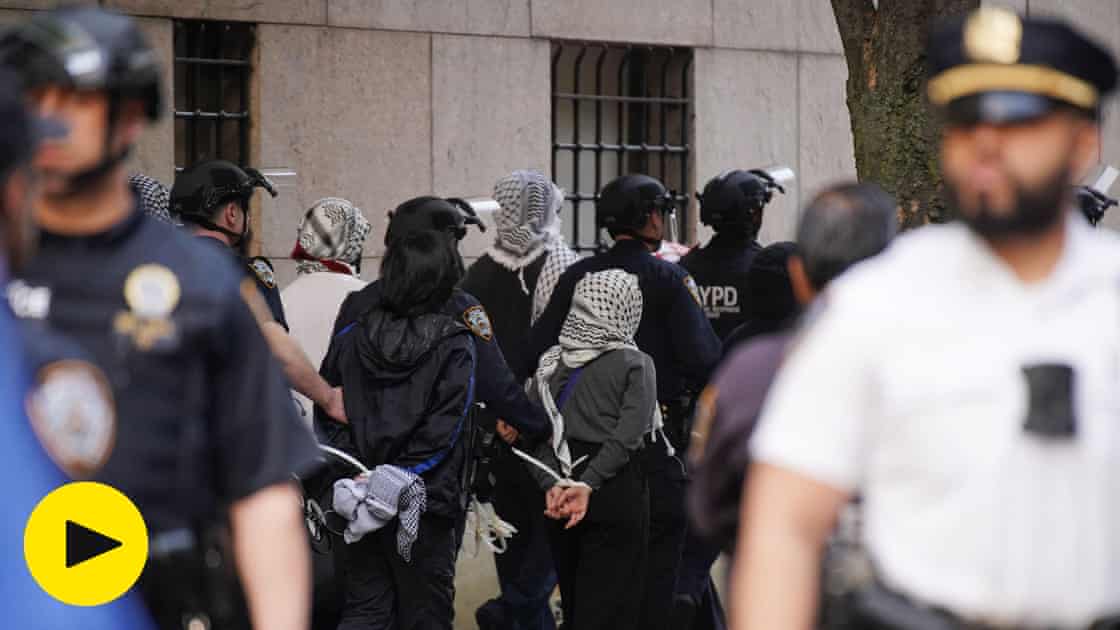 |
|
|
-
How did Columbia justify its decision to call in the NYPD? “Requesting the presence of the NYPD is not the outcome we wanted, but it was absolutely necessary to secure the safety of our community,” said Shipman, who called the protesters’ actions “outrageous”.
-
How did the Trump administration weigh in on the arrests? Marco Rubio, the secretary of state, said on X: “We are reviewing the visa status of the trespassers and vandals who took over Columbia University’s library.”
Pakistan PM vows to ‘avenge each drop of blood’ after Indian airstrikes kill 31
|
|
|
 |
|
|
|
Pakistan has said it will avenge the deaths of 31 people killed in missile attacks by the Indian air force, raising fears of an escalating conflict between the two nuclear-armed countries.
Pakistan’s prime minister, Shehbaz Sharif, said late on Wednesday: “We make this pledge, that we will avenge each drop of the blood of these martyrs.”
Pakistan claimed to have shot down 12 Indian drones overnight and said drone attacks had left one civilian dead and four soldiers injured. Pakistan’s military spokesperson said India had “apparently lost the plot” as he accused it of “yet another blatant military act of aggression”.
-
How has Pakistan responded to the Indian strikes? Pakistan’s government accused India of “igniting an inferno” with strikes on nine sites in Pakistan-administered Kashmir and the Pakistani province of Punjab and authorized its military to take “corresponding” retaliatory action against India.
-
How did India justify the actions? India said the strikes were a direct retaliation for an attack in Indian-administered Kashmir late last month in which militants killed 25 Hindu tourists and their guide. India has accused Pakistan of direct involvement in the attacks through Islamist militant organizations it has long been accused of backing.
Black smoke signals first day of Vatican conclave has failed to elect new pope
|
|
|
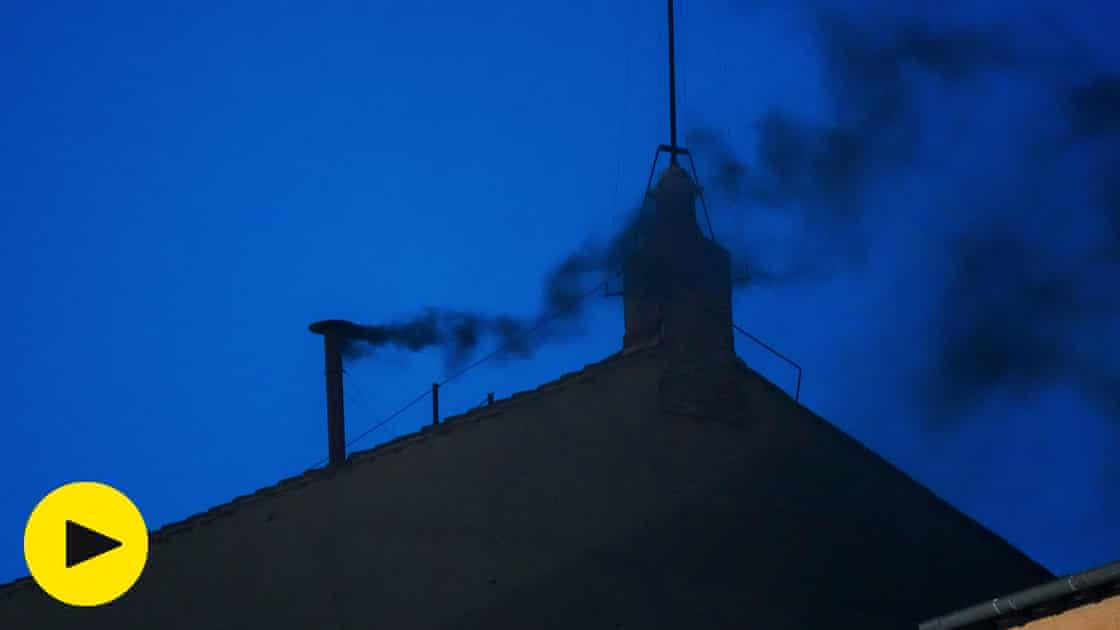 |
|
|
|
Plumes of black smoke emerged from the chimney on top of the Sistine Chapel yesterday, signalling that the 133 cardinals sealed off inside had not elected a new pope on the first day of conclave.
After the formal procession to the Sistine Chapel and each of the cardinals swearing the oath to secrecy, the first voting round got under way at about 5.45pm local time. Then all eyes were on the chimney. After a tense wait, black smoke finally appeared at 9.05pm.
-
How does the conclave work? There are 133 cardinals eligible to vote, who have all arrived at the Vatican from around the world. Read about the full process here.
-
Who will be the next pope? Predicting the outcome of the highly secretive papal conclave is very difficult. But at the moment, speculation has focused on these men.
In other news …
|
|
|
 |
 A protester in front of the US consulate in Nuuk, Greenland, in March. Photograph: Joe Raedle/Getty Images
|
|
|
-
US intelligence agencies have been ordered to focus their spying activities on Greenland, in a stark sign of Donald Trump’s determination to acquire the territory.
-
A federal appeals court yesterday granted a judge’s order to bring a Turkish Tufts University student, Rümeysa Öztürk, from a Louisiana immigration detention center back to New England for hearings to determine whether her rights were violated, after she co-wrote an op-ed that criticized the school’s response to Israel’s war on Gaza.
-
Ceremonies will be held across Europe today as countries mark the 80th anniversary of Victory in Europe (VE) Day.
-
China’s Xi Jinping is in Russia on a four-day visit, during which he will attend a military parade for Russia’s Victory Day anniversary.
-
Canadian police scaled back a search for two children missing in woods for six days, given the “low” odds the children are still alive.
Stat of the day: Trump’s aid cuts blamed as food rations stopped for 1m refugees in Uganda
|
|
|
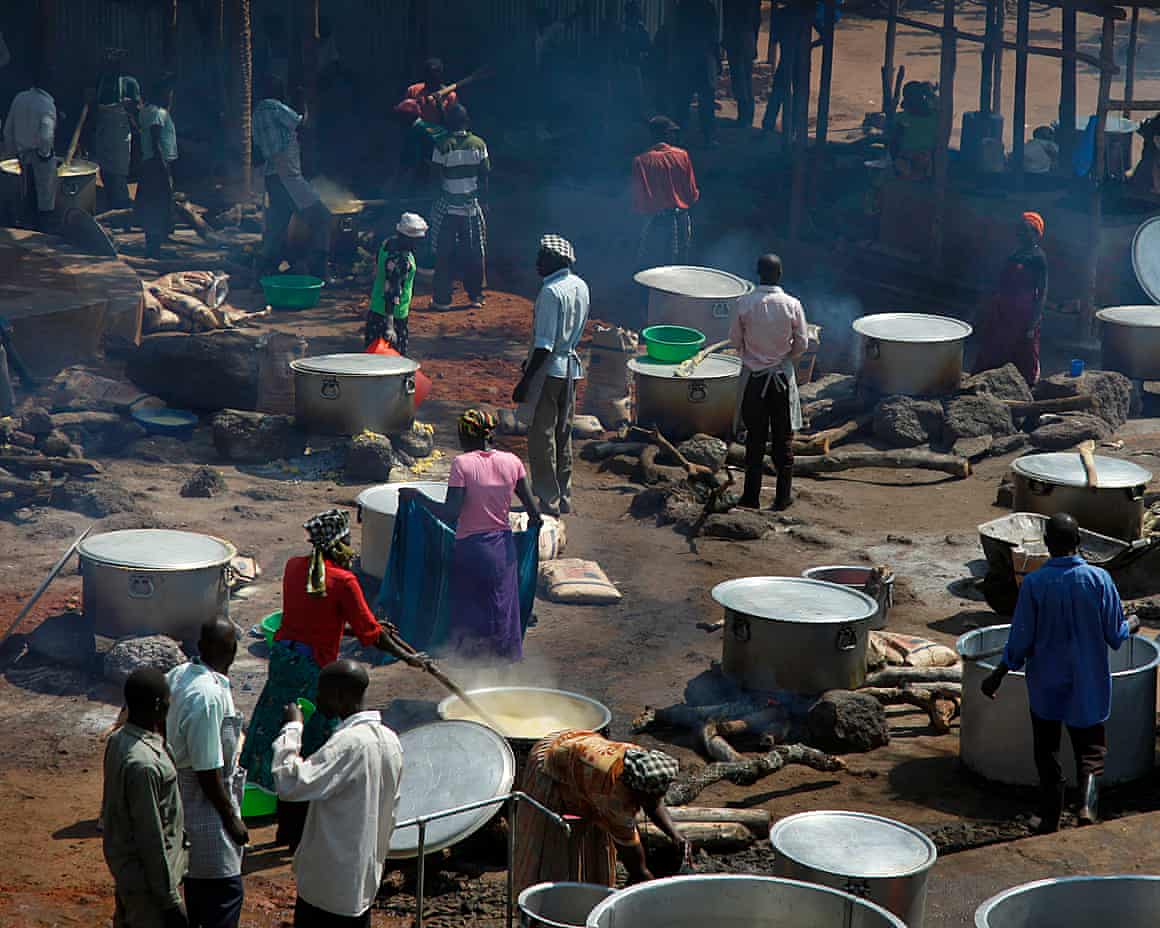 |
 People cook maize porridge, known locally as posho, donated by USAID at Uganda’s Bidi Bidi camp, one of Africa’s largest with more than 250,000 refugees. Photograph: Stephen Wandera/AP
|
|
|
|
Food rations for a million people in Uganda have been cut off completely this week amid a funding crisis at the UN World Food Programme. Donald Trump’s freeze on US aid spending in January has badly hit Uganda’s ability to look after refugees. “Malnutrition has reached critical levels,” WFP Uganda said.
Don’t miss this: ‘Outdated and unjust’ – can we reform global capitalism?
|
|
|
 |
 The left should seize on capitalism’s crisis of legitimacy amid the damage caused by Trump’s tariffs, the long read argues. Photograph: Jim Lo Scalzo/EPA
|
|
|
|
Donald Trump’s tariffs plunged the world economy into chaos. The left should seize on capitalism’s crisis of legitimacy, writes John Cassidy, a staff writer at the New Yorker, in this long read adapted from his upcoming book, Capitalism and Its Critics.
… or this: What happened to the first city that tried to ban smartphones for under-14s?
|
|
|
 |
 St Albans in England attempts to become the first town to ban smartphones for under-14s. Composite: Guardian/Hiroshi Higuchi/Getty
|
|
|
|
It’s a year since teachers at a school in St Albans, England, asked parents not to give younger children smartphones. “When we were at school, at least when we went home the bullies couldn’t get us there,” said one head teacher.
Climate check: April storms that killed 21 in US made more severe by burning fossil fuels, study finds
|
|
|
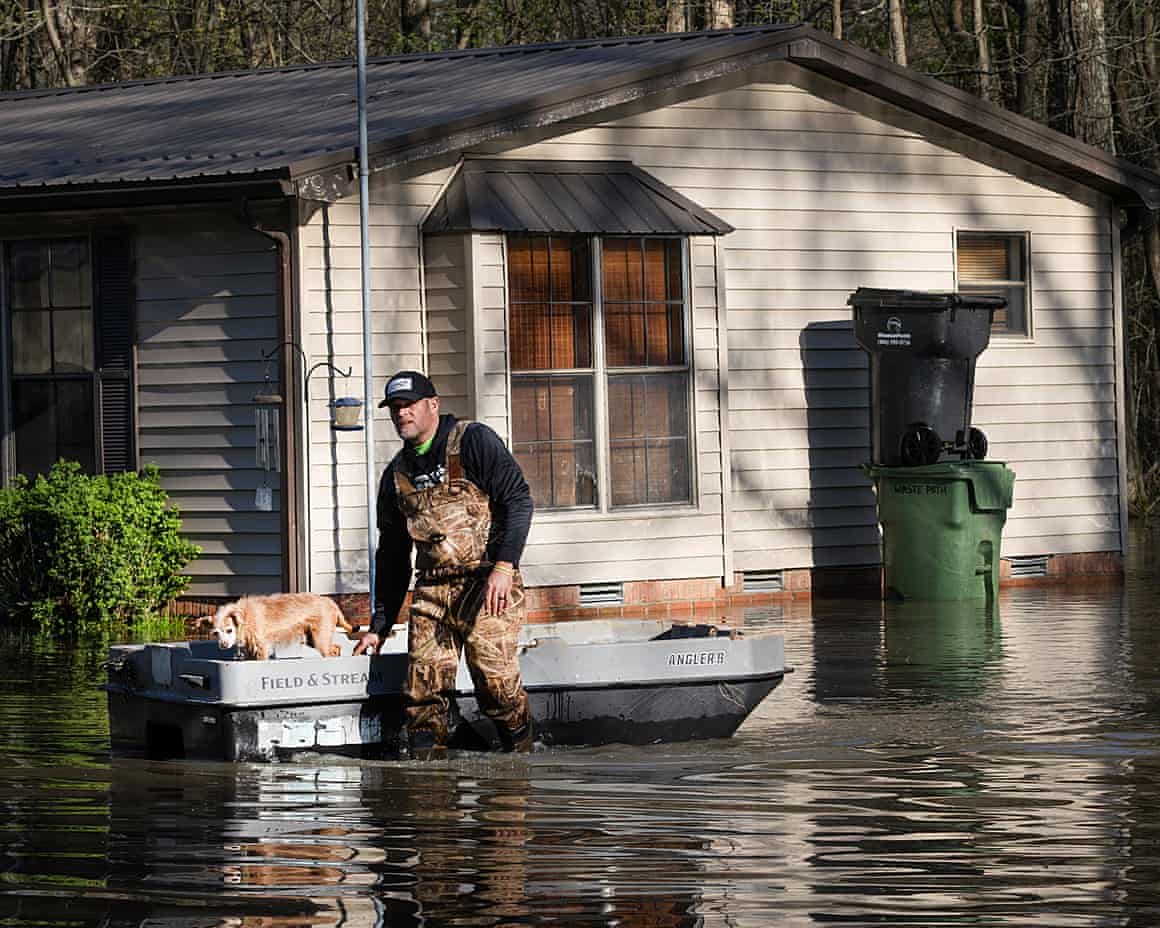 |
 A man wades through flood water with his dog outside his home in Paducah, Kentucky, on 7 April 2025. Photograph: Scott Olson/Getty Images
|
|
|
|
The four-day storm that caused destruction and killed at least 21 people across the central Mississippi valley in early April was made about 9% more intense and 40% more likely by human-caused climate change, a World Weather Attribution study found
Last Thing: Online tool tracks migratory animals’ ‘astonishing journeys’
|
|
|
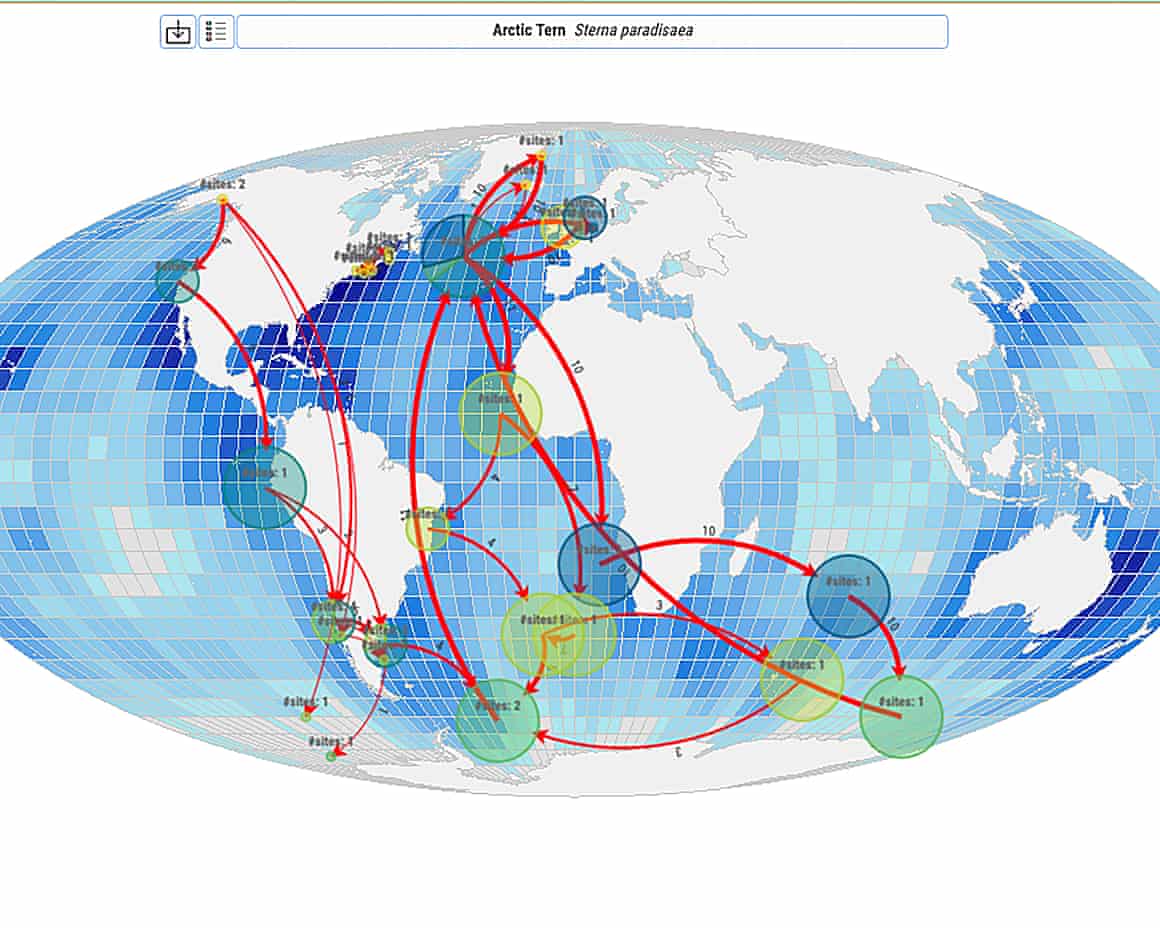 |
 The Mico online tool lets people visualize tracking studies of more than 100 species, including the Arctic tern. Illustration: Migratory Connectivity in the Ocean
|
|
|
|
A new tool from Migratory Connectivity in the Ocean (Mico) visualizes astonishing animal journeys, such as those of female loggerhead turtles, which swim more than 600 miles (1,000km) north from the east coast of Florida to their feeding grounds.
Sign up
|
|
|
|
|
|
First Thing is delivered to thousands of inboxes every weekday. If you’re not already signed up, subscribe now.
Get in touch
If you have any questions or comments about any of our newsletters please email newsletters@theguardian.com
|
|
| |
|
Betsy Reed
|
|
Editor, Guardian US
|
|
|

|
|
|
I hope you appreciated this newsletter. Before you move on, I wanted to ask whether you could support the Guardian’s journalism as we face the unprecedented challenges of covering the second Trump administration.
As Trump himself observed: “The first term, everybody was fighting me. In this term, everybody wants to be my friend.”
He’s not entirely wrong. All around us, media organizations have begun to capitulate. First, two news outlets pulled election endorsements at the behest of their billionaire owners. Next, prominent reporters bent the knee at Mar-a-Lago. And then a major network – ABC News – rolled over in response to Trump’s legal challenges and agreed to a $16m million settlement in his favor.
The Guardian is clear: we have no interest in being Donald Trump’s – or any politician’s – friend. Our allegiance as independent journalists is not to those in power but to the public.
How are we able to stand firm in the face of intimidation and threats? As journalists say: follow the money. The Guardian has neither a self-interested billionaire owner nor profit-seeking corporate henchmen pressuring us to appease the rich and powerful. We are funded by our readers and owned by the Scott Trust – whose only financial obligation is to preserve our journalistic mission in perpetuity.
With the new administration boasting about its desire to punish journalists, and Trump and his allies already pursuing lawsuits against newspapers whose stories they don’t like, it has never been more urgent, or more perilous, to pursue fair, accurate reporting. Can you support the Guardian today?
We value whatever you can spare, but a recurring contribution makes the most impact, enabling greater investment in our most crucial, fearless journalism. As our thanks to you, we can offer you some great benefits. We’ve made it very quick to set up, so we hope you’ll consider it.
|
|
However you choose to support us: thank you for helping protect the free press. Whatever happens in the coming months and years, you can rely on the Guardian never to bow down to power, nor back down from truth.
|
|
| | | | | | | |